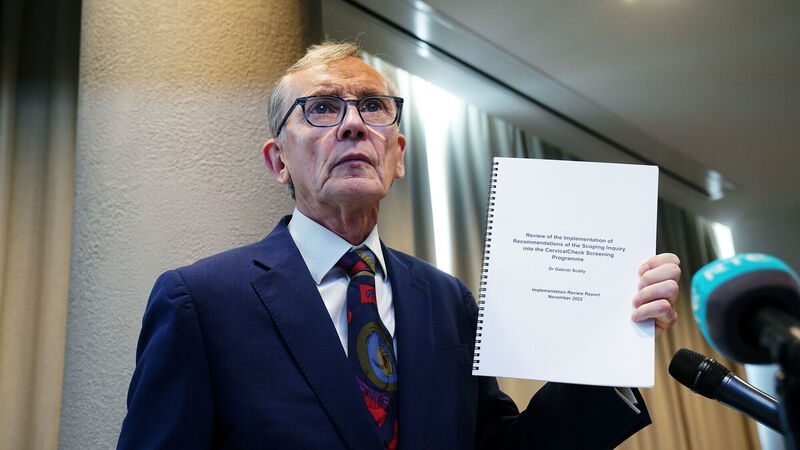Elaine Loughlin: Without a change in attitudes, women will be left feeling like 'lepers'

Gabriel Scally at the publication of his review of the implementation of recommendations of the scoping inquiry into the CervicalCheck screening programme, at Radisson Blu Royal Hotel, Dublin, yesterday. Pictures: Brian Lawless
“Culture eats strategy for breakfast,” was how Gabriel Scally put it when asked about a festering patriarchal mindset where ‘doctor knows best’.
While great strides have been made in women’s healthcare, changes which Vicky Phelan, Stephen Teap, Lorraine Walsh, and other campaigners can take much credit for, until we have a cultural shift in our healthcare system, patients will suffer. Changing culture isn’t easy. It takes time, effort, and commitment.
















